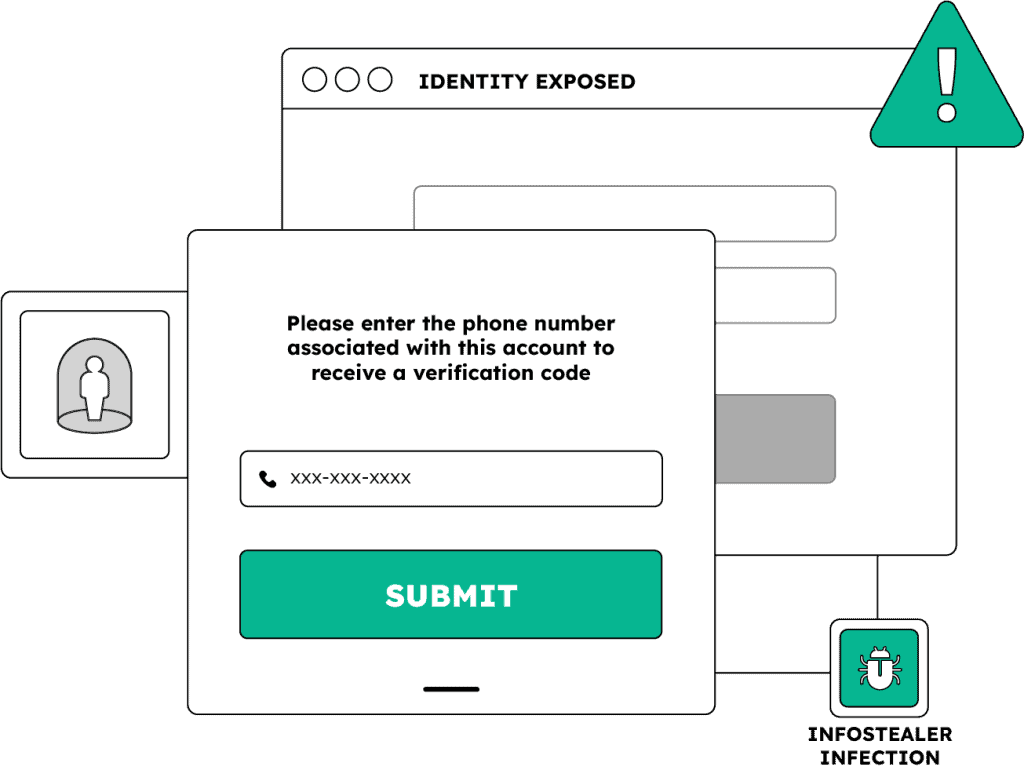USE CASE: FRAUD PREVENTION
Shift Fraud
Prevention Upstream
To Catch Risk Sooner
Fraud doesn’t begin at the transaction. It starts the minute a user’s identity is compromised. SpyCloud pipes compromised credentials, cookies, and PII into your application and risk models, letting you cut down false positives and stop account takeover, session hijacking, synthetic identities, and fraud without extra friction.

Outsmart fraudsters with identity-centric exposure intelligence
Most anti-fraud solutions focus on what users do. SpyCloud focuses on what’s already happened to them. By identifying users whose identities are actively being exploited or sold on criminal marketplaces, we facilitate real-time, decisive action – with minimal friction for legitimate users.
Detect exposed credentials, session tokens, and PII tied to users exposed in a third-party breach, malware infection, or phishing attack
Require step-up authentication or block transactions to stop potential fraudsters – and let low-risk users interact friction-free
Enrich investigations with identity exposure data to accelerate pattern recognition, streamline attribution, and resolve cases faster
Layer identity intelligence into every stage of the user lifecycle
TRANSACTION ATTEMPT
POST-FRAUD INVESTIGATION
Bad actors register with synthetic identities or previously exposed credentials
Fraudsters perpetrate ATO via reused credentials or session hijacking
Fraudsters bypass weak or static controls
Your team is plagued with manual, slow, low-fidelity workflows
Flag high-risk signups using breached, malware-exfiltrated and successfully phished identity data
Enrich real-time risk models to trigger step-up auth or block risky transactions
Accelerate attribution with identity-linked breach and malware exposure intelligence
EXPLORE MORE PRODUCTS
Turn exposure intelligence into your fraud defense
EXPLORE WHO USES SPYCLOUD
Defenders
we help
Digital identity teams
CIAM teams
Risk & trust teams
Improve user risk assessments and reduce false positives with malware-exfiltrated data and stolen session intelligence
Fraud investigators & analysts
Next steps
SpyCloud integrates with your existing stack to extend fraud signals, enhance identity risk scoring, and deliver measurable impact. Stop reacting and start predicting today.